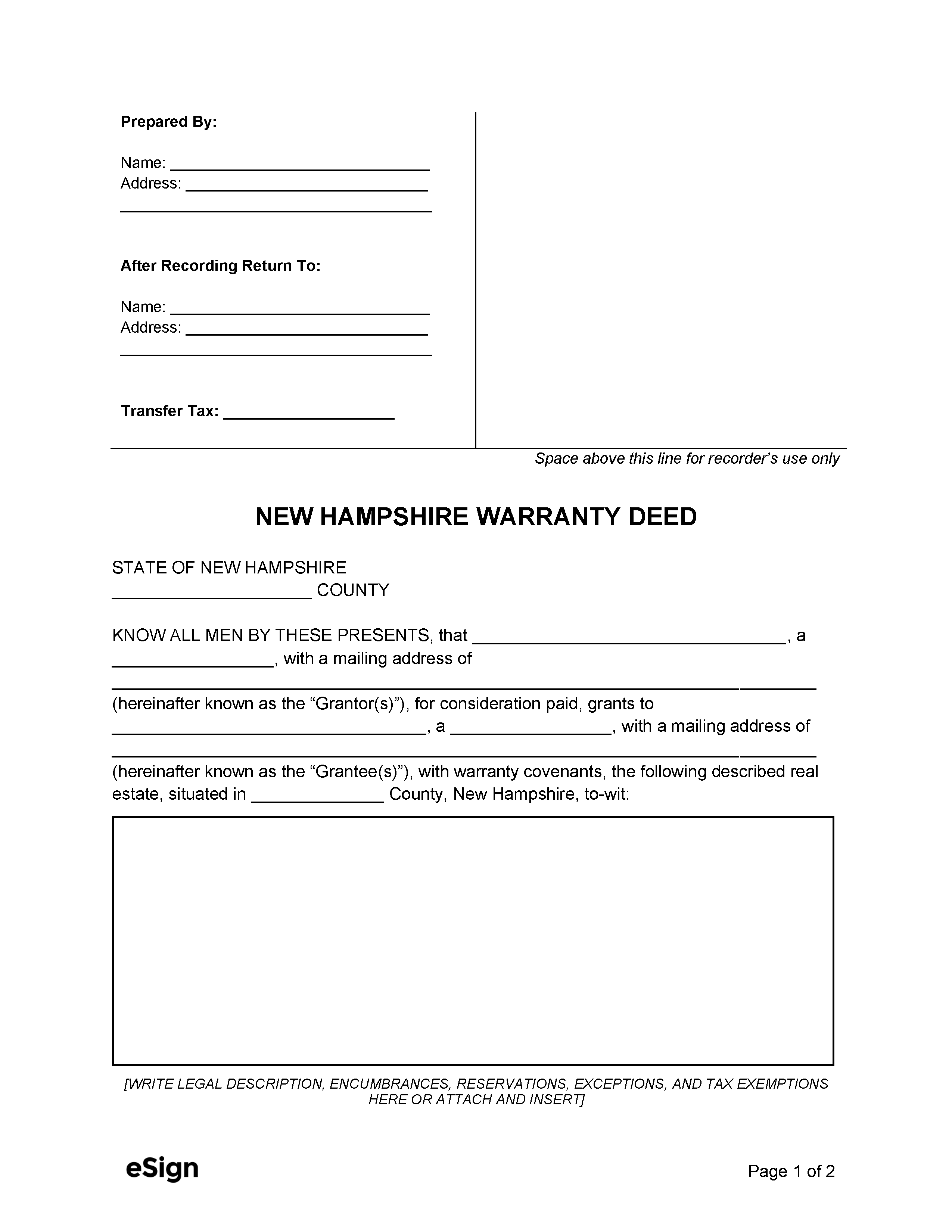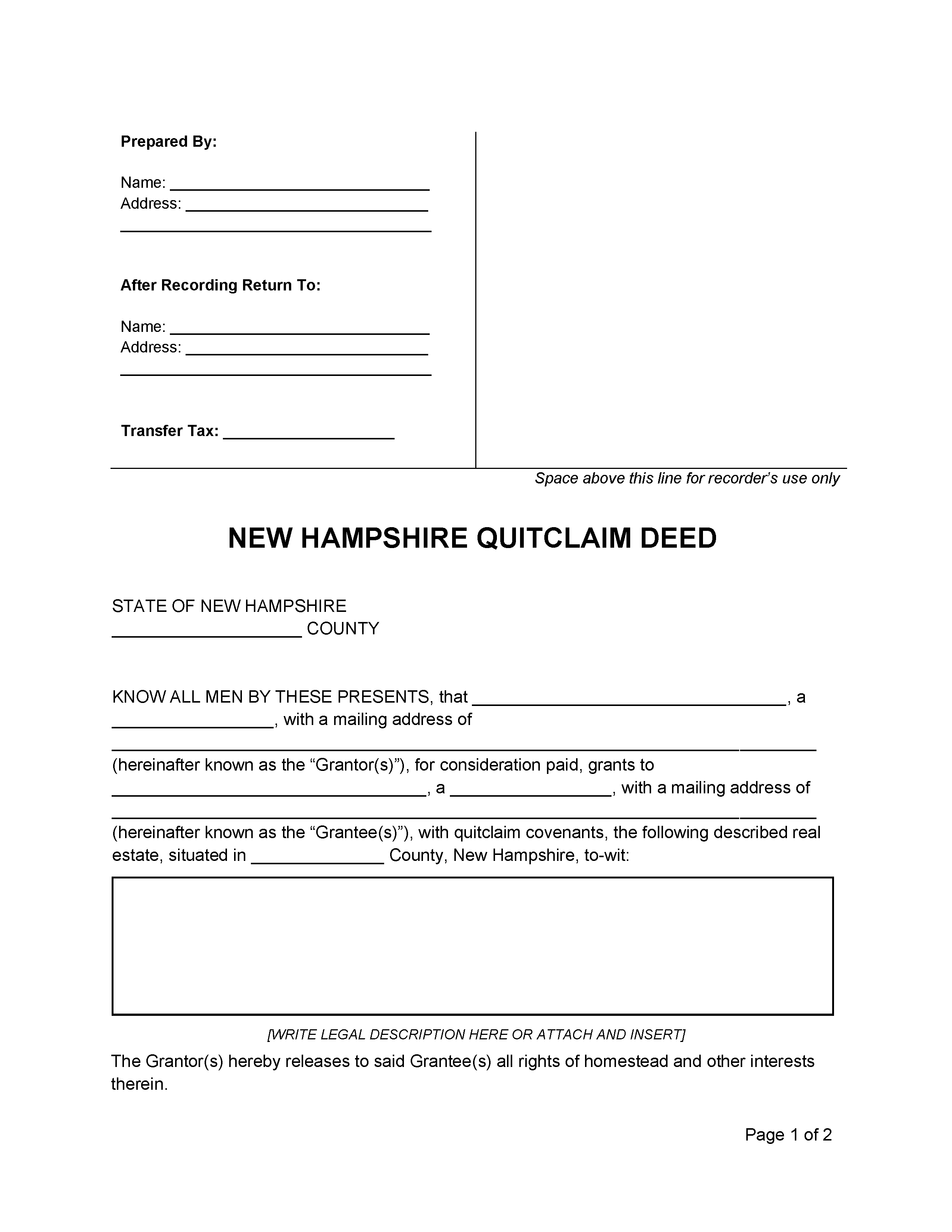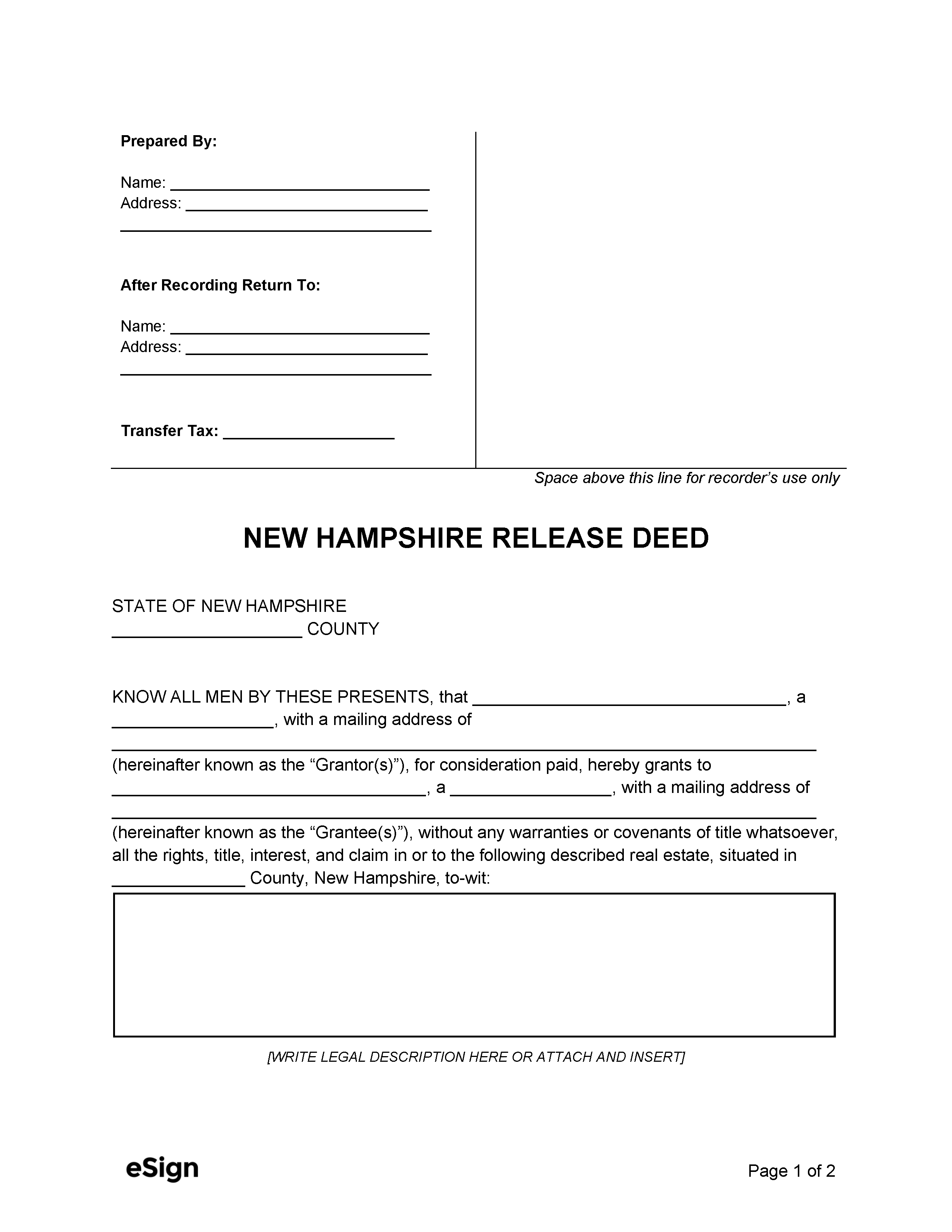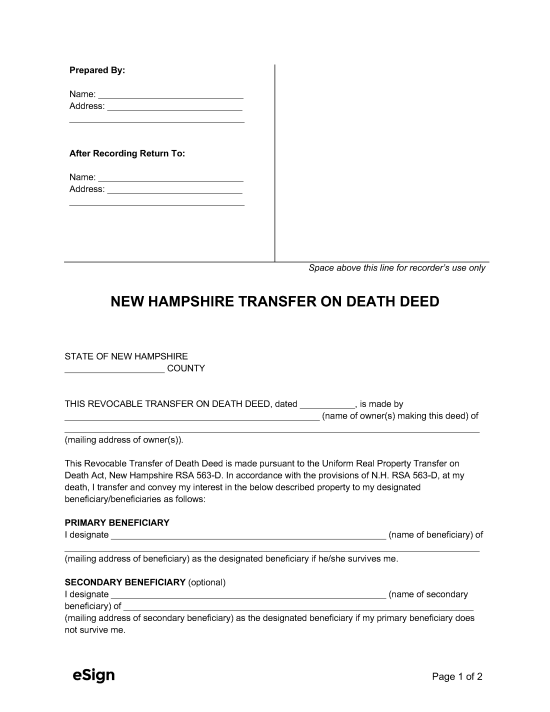By Type (4)
 General Warranty Deed – Provides the grantee complete protection against all title issues. General Warranty Deed – Provides the grantee complete protection against all title issues.
|
 Quit Claim Deed – Includes a warranty against title defects arising under the grantor’s ownership. Quit Claim Deed – Includes a warranty against title defects arising under the grantor’s ownership.
|
 Release Deed – Transfer the grantor’s interest in property with no title warranties for the grantee. Release Deed – Transfer the grantor’s interest in property with no title warranties for the grantee.
|
Transfer on Death Deed – Transfer the grantor’s interest in property with no title warranties for the grantee. – Transfer the grantor’s interest in property with no title warranties for the grantee.
|
Formatting
Each county’s Register of Deeds establishes unique document formatting standards. These requirements typically apply:
Paper – White, minimum 20lb weight, sized between 8.5″ x 11″ and 8.5″ x 14″
Margins – 3″ top-right margin on the first page, 1″ space for all other margins
Font – Black or dark blue ink, at least 10pt font[1]
Recording
Signing Requirements – New Hampshire deeds must contain the grantor’s notarized signature.[2]
Where to Record – Property deeds need to be presented to the Register of Deeds for recording.[3]
Cost – $10 for the first page, $4 for each additional page, $25 LCHIP surcharge (as of this writing)[4]
